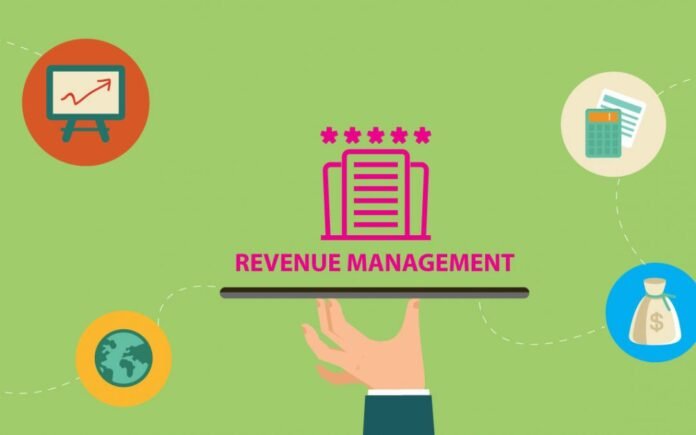Introduction
The hotel price intelligence technique reduces the physical labor and time required to gather critical information from many sources.
They provide the information in practical formats, assisting revenue managers in fine-tuning their pricing tactics.
Hotel rate briefings give owners and operators a complete understanding of the neighborhood market’s most recent real-time price trend. They can quadruple revenue creation and increase profits in this way.
Defining Hotel Rate Intelligence
Rate of shopping refers to the process of comparing several options based on price. Rate comparison shopping is not just for the hospitality industry. Passengers are rate shopping when they scan over options on Kayak. But let’s utilize the definition to simplify things: achieving rate intelligence is done through rate shopping.
The foundation of managing revenue is analytics. The hotel must understand consumer and market behavior to classify clients into manageable groups, predict seasonal demand, and set the best prices for every room. This information generally appears on business intelligence report and live dashboard to make it more visible and valuable.
Rate intelligence refers to any portions of such reports that might be useful to hoteliers in making knowledgeable pricing selections. Rate intelligence is the process of gathering and displaying market data using rate shop instruments, such as
Your rate across all channel, Requirement and occupancy in competitor hotels, local event and holidays, competitor rates and how you stack up against them, and your rates overall.
Reasons for Using Rate Shopping Tools
What will be the next step after you obtain rate information? Aside from just glancing and manually altering your rates, a few duties of managing revenue heavily depends on it.
Automated Pricing and Dynamic Pricing
Dynamic pricing, which is the revenue management techniques, is determining a rate based on the state of the market to increase sales. This method is often used with airline ticketing, but it can also be applied to hotel reservations.
Rules or machine learning can be the foundation of dynamic pricing engines. The machine learning idea allows the engine to study rules independently, enhancing its performance with every bit of data, in contrast to the earlier situation when they modify rates by “if-then” statements supplied by specialists. But whichever engine you use, it will only work its magic once you feed it pertinent information about the environment state right now. Moreover, rate shopping tool are one of their primary sources of data.
By providing historical and current data from different hotels, rate shopping tool can give users a broader perspective. Suppose you are a new company or considering to open a property in a diverse location, for instance, and lack historical data. In that case, you can view competitors’ room rate and availability and watch price evolution to gain insight into other people’s pricing tactics.
Monitoring Rate Parity
Today, engaging with OTAs is essential to operating a hotel commercial. Additionally, when you have listings on numerous websites, you require (and are frequently compelled to) guarantee rate parity or price uniformity among all distribution channel, that includes your website.
However, hotels frequently don’t collaborate directly with their distributor, as when an OTA purchases its list from a wholesaler. A pricing discrepancy can occur when a hotel’s website price exceeds an OTA’s. As a result, fewer people stay at hotels, damaging the property’s reputation and resulting in lower rates.
Many rates shopping solutions gather data on your prices from various sources and readily show, creation it simple to identify disparity without manually searching.
Benchmarking and Comparing performances
You may compare your KPIs and always have accurate benchmarking data using competitor rates and occupancy information. You will have access to the RevPAR, Occupancy Rate, and ADR of other hotel and properties.
Working of Rate Intelligence Tool
Rate Intelligence Tools typically extract crucial, up-to-date data from hundreds of web sources and present the most pertinent outcomes depending on a query.
They operate fast and automatically, saving you time and money. Check out the top 11 paid and free tools for comparing hotel rates to determine which best suits your business plan.
By minimizing manual time and effort, competitive hotel pricing intelligence technology aids hoteliers in improving the process of gathering price-related data.
To maintain the data relevantly and helpful, they typically use real-time price trends and current market conditions while keeping your competitors as a base and in your local area.
After receiving this information, hoteliers can improve their operations and rates to acquire a competitive edge.
This rate intelligence software efficiently takes notice of past and current hotel pricing data sets to give users an action plan because we know the importance of historical price data in the hotel business.
Hotel Makcorps cost. Any business owner of hotel can use API as a practical, intelligent way to create a competitive edge in the market.
In a single get request, it offers a hotel rates comparison API that monitors approx. 200 OTA platforms. The prices of all the hotels in every city on the planet are now easily accessible.
Also, price comparison aids in efficiently optimizing your pricing policy for competitive benefit.
It’s a clever approach that efficiently reduces manual labor while substituting automated technologies for them.
You will always stay caught up due to Makcorps’ hotel API’s accurate and compelling data.





